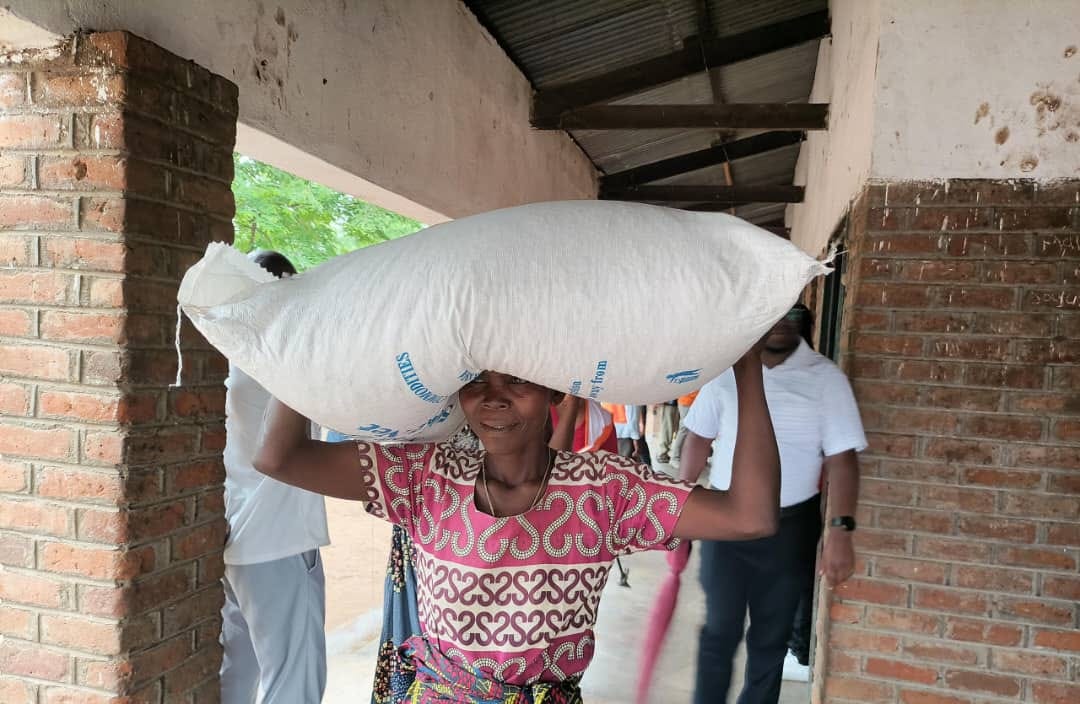WFP Launches Maize Distribution in Chikwawa for El Niño Relief
In Chikwawa district, which has a population of 630,000, over 384,000 people are affected by food insecurity.
CHIKWAWA, Malawi — The World Food Programme (WFP) began distributing maize to food-insecure households in Malawi's Chikwawa district on Wednesday, part of an emergency response to El Niño-related crop failures, writes Esther Banda.
Prolonged dry spells followed by heavy rains and floods during the 2023 rainy season devastated agricultural activities in Malawi's Eastern Region, leaving many residents facing hunger.
At Tiasamale Community Based Organization in Chadula Village, beneficiaries received their first allocations of food aid. Mwasautsa Machina, a 50-year-old widow and mother of five, described her family's struggle.
"We could stay sometimes two or three days without eating anything," Machina said.
"Receiving this maize is God's answered prayer."
Paul Turnbull, WFP's country director in Malawi, said the organization aims to reach 2.1 million people but currently faces a funding gap.
"At present, WFP faces a funding gap of $64 million to fully implement its part of the El Niño response plan," Turnbull said.
He noted that donors have contributed $38.5 million, allowing WFP to secure 33,000 metric tons of maize and 317 metric tons of fortified cereals.
Charles Kalemba, Malawi's commissioner of disaster management affairs, stressed the need for sustainable solutions.
"Once we move out of rain-fed agriculture and start irrigated agriculture, we can be able to feed this nation but also to export," Kalemba said.
Andreas Hartman, deputy head of mission at the German Embassy, pledged support beyond food distribution.
"We will also help farmers adapt their farming methods so that they can be harvesting despite the situation," Hartman said.
Distributions began in mid-September, earlier than the planned November start, due to the severity of the hunger crisis. Each targeted family receives a 50-kilogram bag of maize per month.
In Chikwawa district, which has a population of 630,000, over 384,000 people are affected by food insecurity.
The emergency response is supported by various international donors, including the European Union, the United States, and the United Nations Central Emergency Response Fund.



